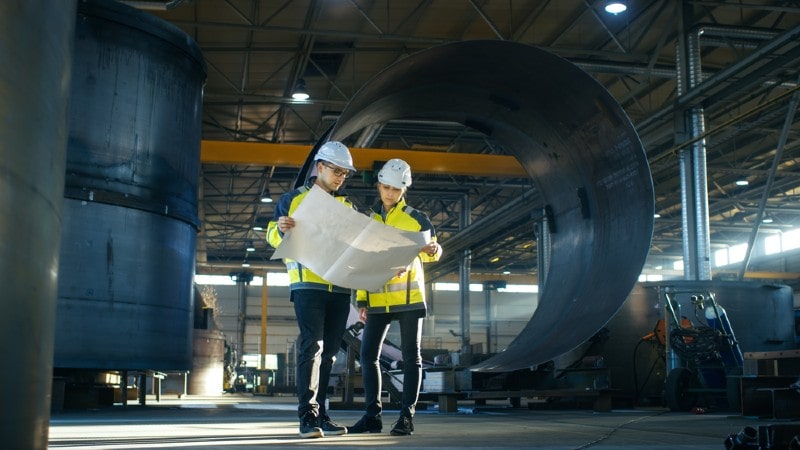How has your workplace adapted during the coronavirus pandemic?

The COVID-19 outbreak has had a massive impact on the warehouse environment and the factory workforce. Many companies across the US have been forced to change the way they work amid a series of shutdowns and closures in response to government restrictions. As the pandemic swept the globe, manufacturing companies have faced great uncertainty and as a result, have implemented changes to ensure the workplace is secure for their employees. The coronavirus pandemic has had huge implications for businesses, and it will no doubt affect frontlines workers for years to come. Here’s an overview of how businesses can adapt during these challenging times.
Work practices during the pandemic
The pandemic has increased risk for every business, with organizations having to apply new guidelines and policies to protect the workforce. Employee safety and health have always been a top priority in the industrial environment. However, as a result of the pandemic, companies need to pay even closer attention to their hygiene measures and the safety of workplace conditions. One of the key ways businesses can adapt to the changes is by creating a mutual trust with their employees.
With manufacturing companies opening up and maintaining operations, workers need to be able to trust their employer that they will be kept safe and protected. This means protecting employees’ mental wellbeing is all the more important, as well as making sure that workers have a say in what kind of safety conditions are in place. Leaders of manufacturing and industry-related firms need to prepare for the next normal, and work to create a sustainable, safe environment that drives productivity.
The importance of upskilling
In a time of crisis, it’s never been important to promote professional development and focus on growing employees’ skills. Even before the pandemic, skills gaps have plagued industrial sectors, particularly manufacturing. Upskilling within the manufacturing industry is vital for the long-term growth of the sector. When the crisis is finally over, it will be clear which companies have taken stock to ensure their workers have the right skills and continue to thrive in the future. That’s why companies need to take action with recovery in mind.
Manufacturers that provide opportunities for learning new technical skills, such as automation and IT, will be able to future-proof themselves and create a more robust business. There has always been a lack of digital tools for industrial workers, but COVID has paved the way for a greater need to provide new tools for greater efficiency. If manufacturers want to build a resilient future, it’s essential that they prioritize digital development and cross-training for frontline workers.
Workplace distancing
Social distancing and sanitization have been proven to be an effective method to stop the spread of coronavirus. Manufacturing and many other industrial sectors are unable to support remote working, so it’s all the more important that these businesses alter team structures and implement workplace distancing guidelines. However, one of the key challenges for manufacturers is how to maintain social distancing on-site. Plant leaders should minimize the amount of contact all staff have with each other by staggering the workforce. This means establishing shift patterns to keep workers organized and to help people feel safe outside their homes. To create a COVID-secure production facility, employers need to create self-contained teams for certain tasks, which would effectively create “working bubbles”, reducing the risk of infection. Senior managers could also monitor how often employees are cleaning the machinery and other equipment, and they’ll be able to implement on-site remote monitoring to increase efficiency across the workforce. The introduction of work staggering and social distancing measures will ensure business continuity. Looking ahead, as new staff are hired, they will want to feel comfortable in their environment. Industrial companies need to make sure they’ve adapted their workplace so they can emerge stronger than ever in the future.
Are you looking for your next role in manufacturing?
TRS Craft works across the United States to recruit the best talent for businesses in the manufacturing, maintenance and construction industries. We have an outstanding track record of delivering an efficient service to our clients, who we support with tailored recruitment programs. We provide a variety of skilled professionals, from contractors to general labor talent. Our approach to recruitment is flexible and proactive, and we’re dedicated to building long-lasting relationships. Contact us today to find out how we can help you.



